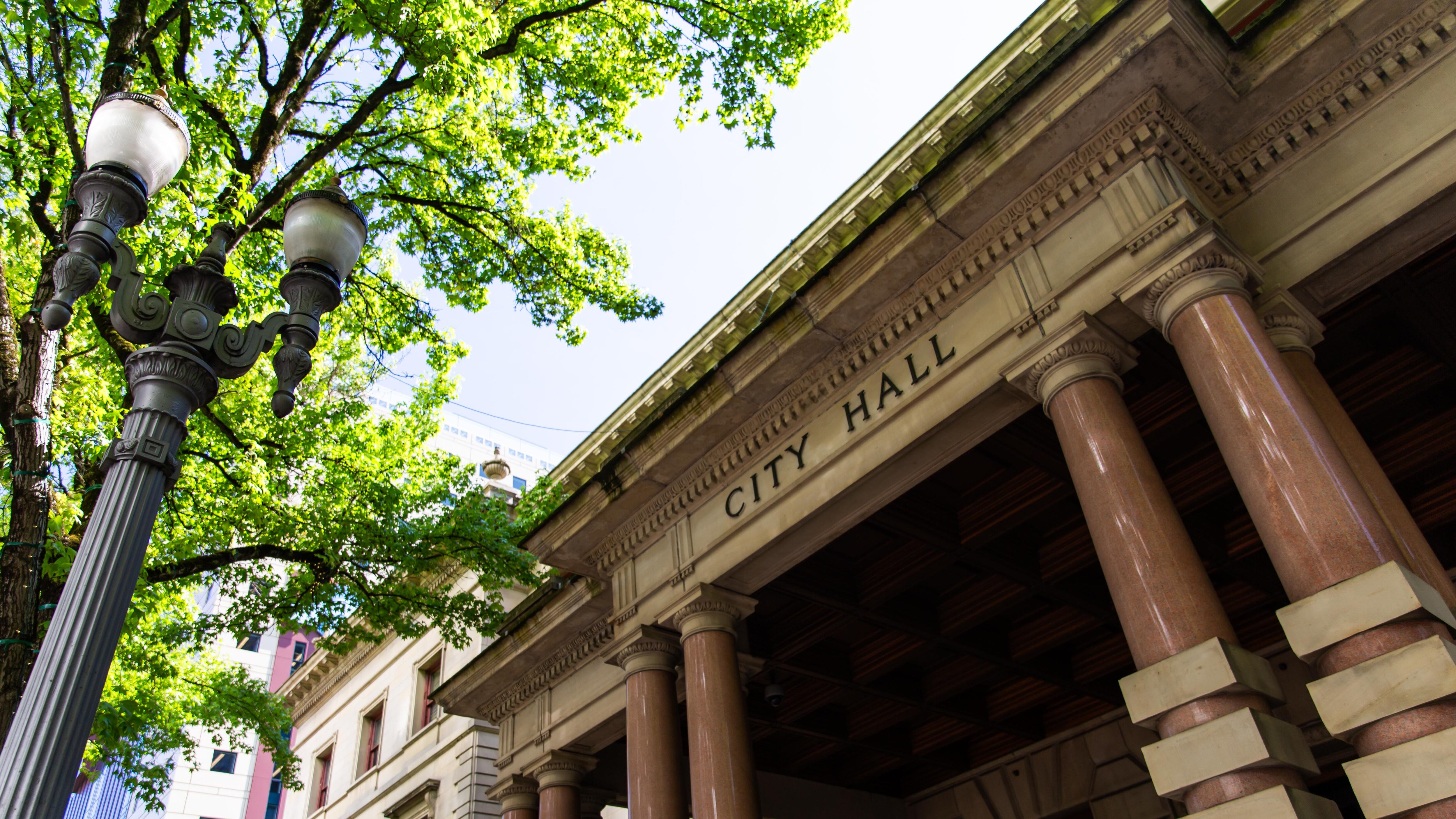In the new year, Portland city government will look a lot different.
The mayor will oversee the executive branch of city government and hire a city administrator to run the bureaus. Meanwhile, a 12-member City Council, elected in sets of three from four voting districts, will make policy. City Hall will start looking a lot more like the Oregon state Capitol: City councilors will serve on legislative committees and bring policy before their colleagues, while a council president places legislative items on the agenda.
That much is known about the new government. What isn’t known might be just as interesting.
City staff dedicated to transitioning the city into its new era has nine months until the contraption launches. And there’s a lot staffers still have to figure out.
WW recently spoke with Shoshanah Oppenheim, the charter transition project manager, and Tate White, the strategic projects manager, about what still has to happen before the new form of government kicks in—and certain things that the city’s future leaders will have to determine for themselves.
“What’s unusual is the amount of change that’s happening at the same time,” Oppenheim says.
Just how much change? Oppenheim offered an analogy: “It’s not just building a plane and flying it at the same time; we’re also driving a car, and at the same time we’re [having to] get into a plane that we’re building. They’re entirely different systems with entirely different authorities.”
Here are four questions that remain unresolved, and a couple that have been answered:
The City Council last year approved the creation of four future “officer” positions under the direction of the mayor. The four are officers of equity, sustainability, engagement and communications. What will those people do?
It’s unclear. None of these jobs was mandated in the charter reform measure. Transition staff proposed the idea to the City Council, which approved it in December.
“These positions came out of the conversation of changing the organization to report up to the city administrator versus to the council members,” Oppenheim says. “We don’t have a citywide communications strategy. We don’t have a citywide approach to delivering equitable outcomes. We have a patchwork. If we had officers, maybe we could look at these disciplines with a citywide perspective.”
The city’s transition team is launching a public process (and likely will hire a contractor) to help determine what those officers will do, exactly. This much is known: The four officers will report to the city administrator, who in turn reports to the mayor.
The City Council will have committees, similar to legislative committees. How many, and for what policy areas?
Legislative committees will ultimately be created by the City Council sometime after councilors are sworn in next January. This summer, city staff will make recommendations about what type of committees—and how many—the 2025 City Council should have, based on cities of similar size that operate with a similar form of government.
The city’s budget includes funding for nonpartisan committee staff that, according to White, could support about four committees. “We’d like to see that staff group grow over time,” White says.
The Government Transition Advisory Committee has already discussed committees it will recommend to the City Council. They include committees on public safety, governance, public health, transportation, homelessness and sustainability.
Will there be caucuses, like there are in the state Legislature?
Caucuses are groups of legislators connected by a shared interest or identity. For instance, Oregon’s Black Caucus champions legislation aimed at supporting Black Oregonians.
According to White, whether the city will have caucuses is up to the future City Council and is not something transition staff has discussed in earnest yet.
Will quorum rules apply to the four geographic voting districts?
The new charter states that seven or more City Council members constitutes a quorum. That means a meeting must be public if seven or more elected officials are present.
There are no quorums within specific voting districts, White says. This distinction is important because it means that should all three members in, say, Southeast Portland’s District 3 discuss public business behind closed doors, they can do so without giving the public notice or otherwise complying with Oregon’s public meetings law.
Who will be the city administrator next January?
On July 1, Mayor Ted Wheeler is expected to appoint an interim city administrator. Once the next mayor is elected, that person has two options: keep the interim city administrator until the mayor hires and gets approval from the City Council for a permanent one, or let go of Wheeler’s pick and act as one’s own city administrator until the mayor hires and the council approves a new one. (In the absence of a city administrator, the mayor acts as their own administrator under the new city charter.)
What needs to happen at the very first City Council meeting on Jan. 2, 2025?
As its first order of business, the City Council must elect a council president and vice president at its first meeting. The council president has the power to set the council agenda and is elected by a simple majority, as is the vice president.
How will that first meeting go, though? It’s anyone’s guess.
“We can’t really dictate [the process],” White says. “We’ll do our best to make the rules and procedure clear in the candidate onboarding process in December, but it’s really up to them to figure that out.”
